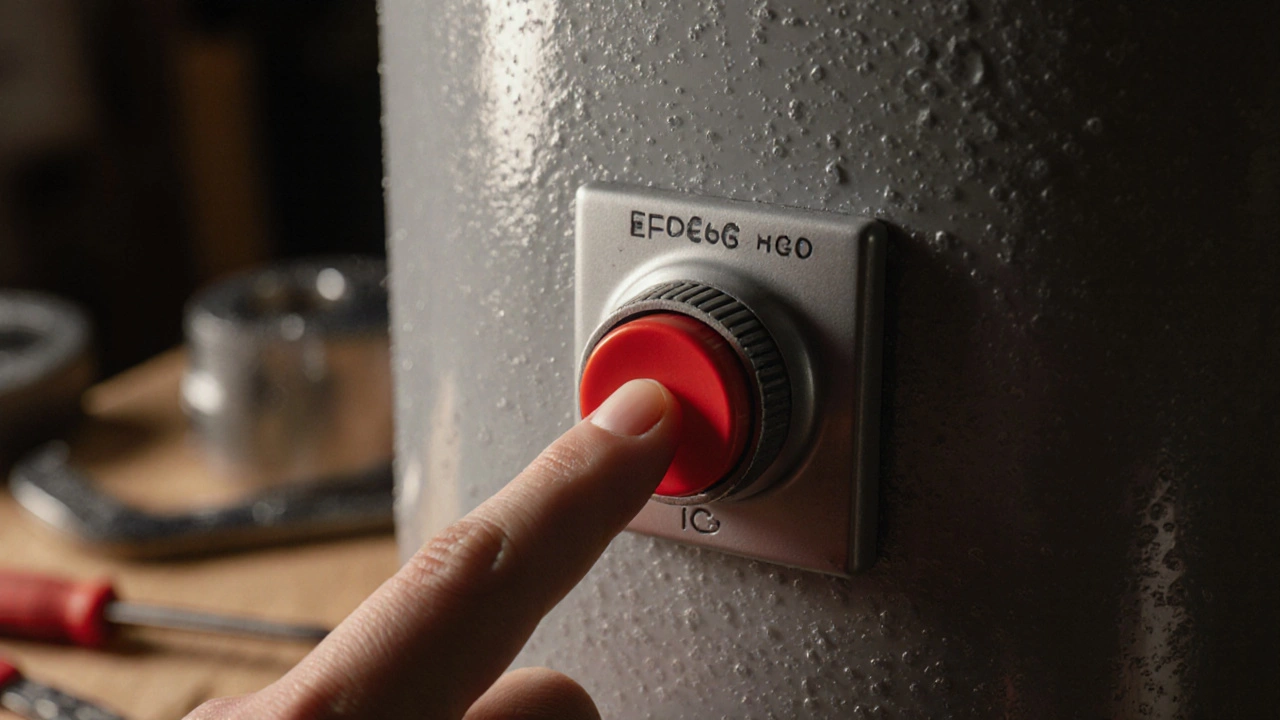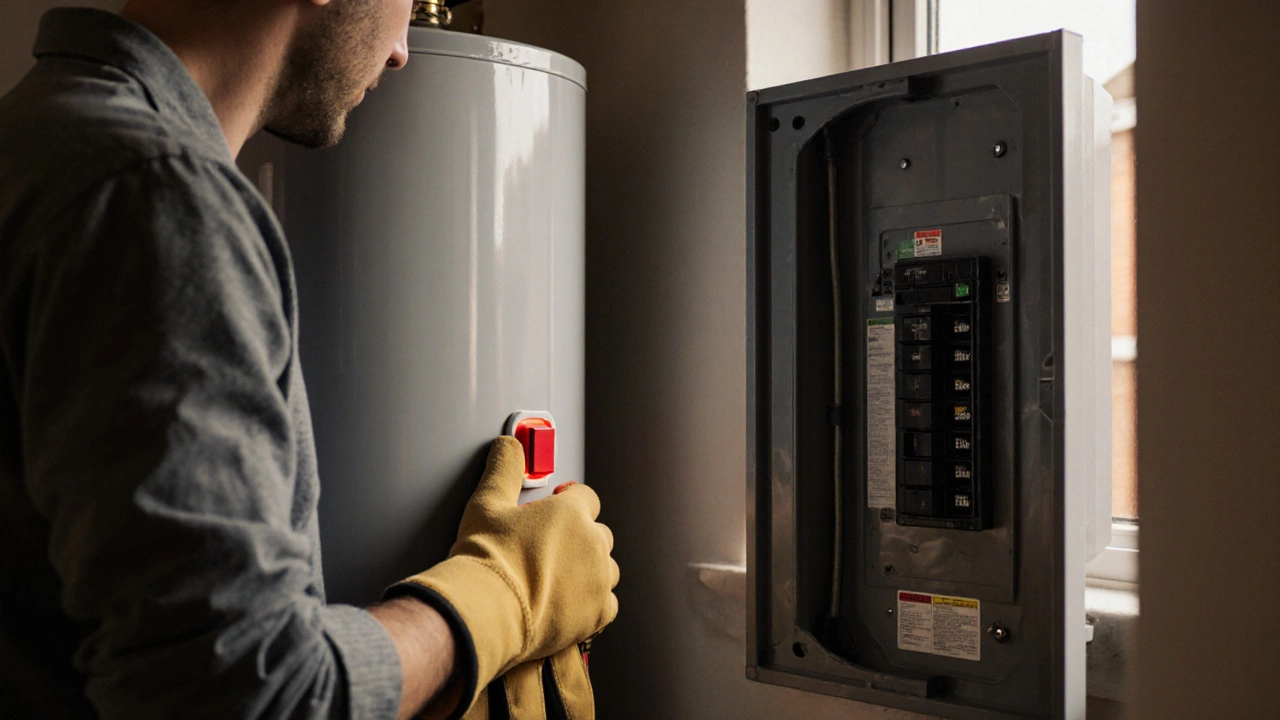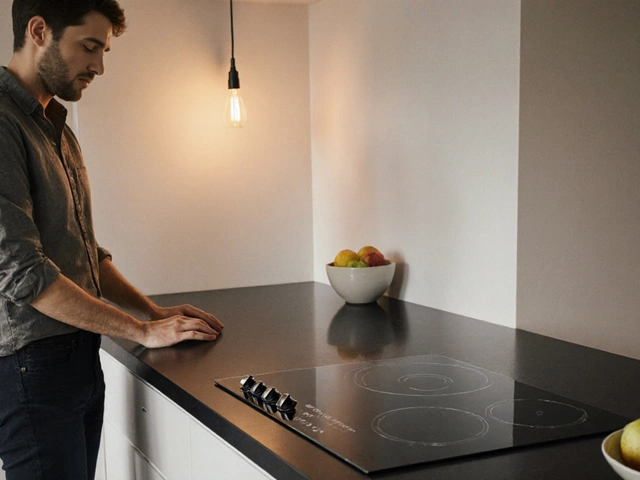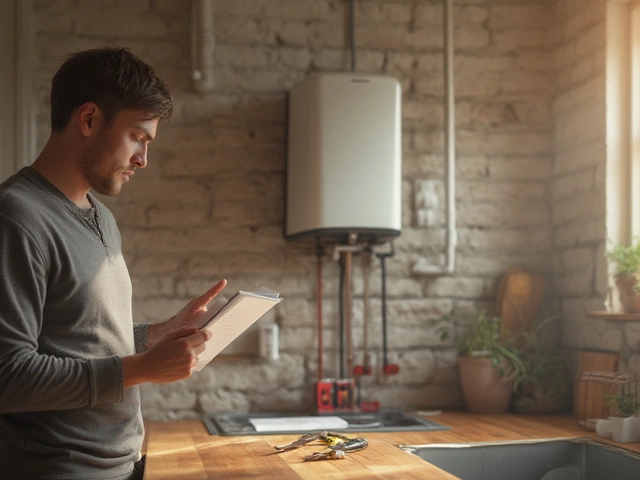When working with water heater reset button, the small push‑type switch that restarts an electric water heater after it trips. Also known as reset switch, it protects the unit from overheating and restores hot water when conditions are safe. Most homeowners only see it when the shower turns cold and a flashing light appears on the heater. The button isn’t a magic fix; it’s a safety latch that tells the system, “Cool down first, then give it another go.” Understanding how it fits into the heater’s overall safety network saves you time, frustration, and a wasted call to a repair tech.
The reset button works hand‑in‑hand with several other components. electric water heater, a tank‑type appliance that stores and heats water using electric elements relies on a thermostat and a pressure switch to monitor temperature and pressure. If thermostat, the sensor that tells the heater when the water is hot enough fails or reads high, the heater will shut off and the reset button will pop out. Similarly, a faulty pressure switch, the device that stops heating if water pressure gets too low or too high can cause repeated trips. In short, the reset button encompasses a safety mechanism, proper use of the reset button requires understanding the thermostat, and repeated resets influence the lifespan of the water heater.
Before you slam the button back in, turn off the power at the breaker, let the tank cool for at least 15 minutes, and check for obvious signs: a leaking tank, burnt smells, or rattling elements. If the heater looks fine, press the reset gently. If the light stays on and hot water returns, you’ve likely cleared a temporary overload. If it trips again within a short period, it’s time to inspect the thermostat, replace a worn pressure switch, or call a qualified technician. Remember, the reset button is a safety feature, not a diagnostic tool; it tells you something’s wrong, but it doesn’t fix the root cause.
Below you’ll find a collection of articles that dive deeper into each of these topics. From diagnosing boiler problems and flushing your water heater to understanding why a hot water system might run cold, the resources are organized to give you actionable steps, cost expectations, and clear signs when professional help is needed. Whether you’re a DIY enthusiast or just looking for quick answers, the guides will help you keep your hot water flowing without unnecessary headaches.

Learn how to properly reset your water heater's safety button - and why holding it down won't help. Find out what really causes it to trip and when to call a professional.

Learn when it's safe to press the water heater reset button, step‑by‑step instructions, common risks, and when to call a professional.

Discover if electric hobs can be fixed, cost breakdowns, DIY steps, safety tips, and when to replace. A practical guide for UK homeowners.

Curious about what counts as an appliance? Get concrete examples, clever tips, and practical facts about home appliances to make smart choices for your household.

Thinking of fixing your own water heater? Learn when DIY is safe, common problems, money-saving tips, and when to call a pro.

Fixing an electric stove might seem daunting, but many common issues are surprisingly manageable with a bit of know-how. From understanding why the burners aren't heating to recognizing if a problem needs professional attention, this article sheds light on various aspects of electric stove repair. Whether you're dealing with strange noises, faulty wiring, or a completely inoperative oven, we explore what’s usually repairable and what might require a replacement. With practical tips, learn to troubleshoot and potentially save on costly service calls.

When your water heater only puts out cold water, it’s more than just annoying—it can point to real problems inside the unit. This article breaks down the most common reasons behind a water heater that refuses to warm up, from tripped breakers to busted heating elements. You’ll find tips on quick checks you can do at home before calling a pro, plus some unexpected facts about how water heaters really work. Knowing what’s wrong can save you from a frigid morning shower and a giant repair bill. Get ready to tackle that cold water problem with practical advice you can use right away.